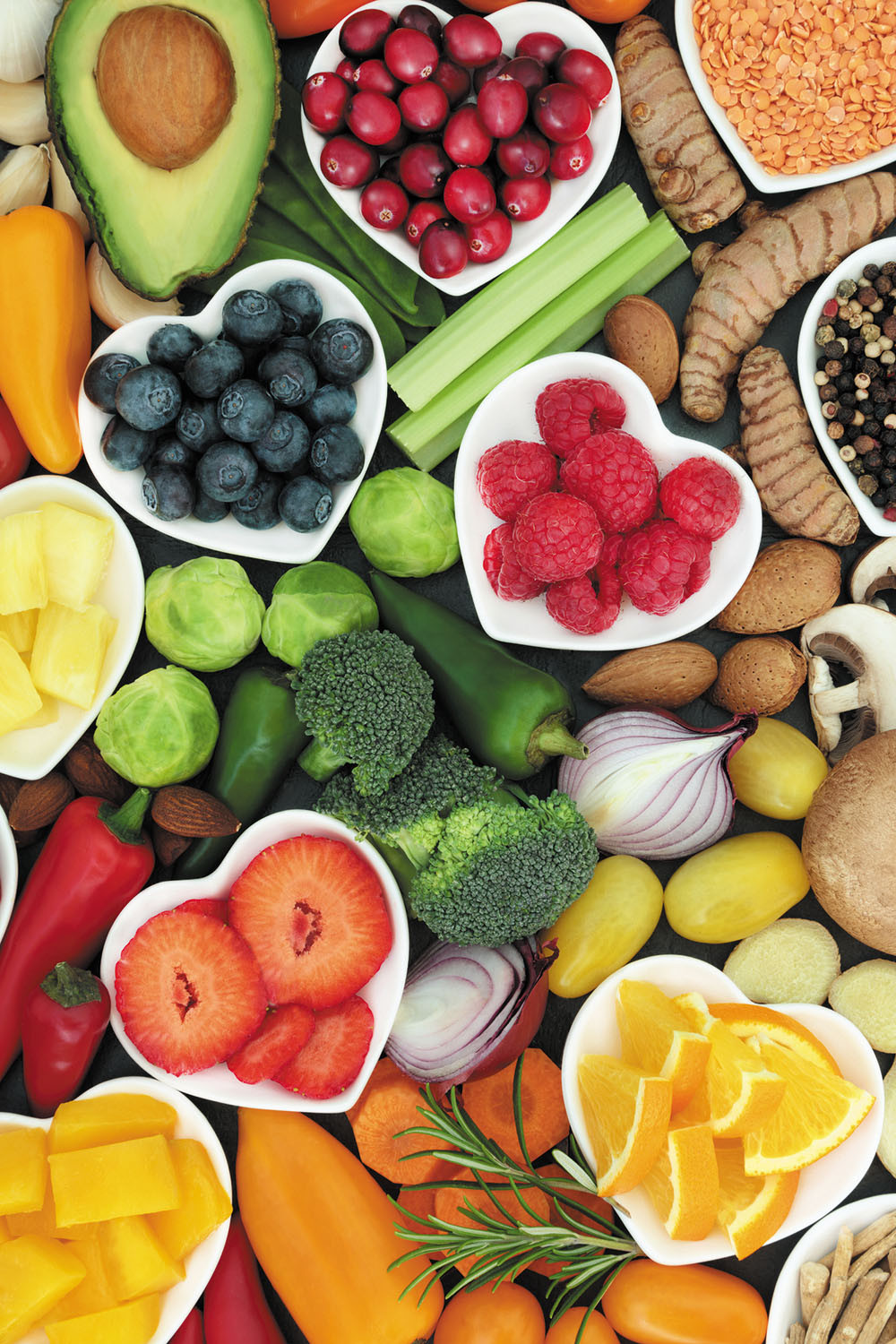
What are somatic workouts?

How to curb your stress eating

How to spot Parkinson’s disease symptoms

8 simple ways to reduce ultra-processed foods in your diet

Heart failure symptoms in women: How they’re different

GERD diet: Foods to avoid to reduce acid reflux

Strong is the new skinny

Everyday habits that sneakily weaken your bones

Don’t wait to get help for back pain

Correcting how you walk may ease osteoarthritis knee pain
Nutrition Archive
Articles
9 at-home treatments for acid reflux
GERD, or acid reflux, can lead to heartburn, a bad taste in your mouth, and other unpleasant symptoms. Here are some treatments you can try at home.
By the way, doctor: What's the right amount of vitamin C for me?
I'm 79 years old and have been taking 3,000 mg of vitamin C a day for years. I'm now uneasy about taking this amount and plan to cut back to 1,000 mg daily. Is this the right dose? Will my body be startled by the abrupt change?
5 foods to eat to help your heart
While the focus is often on avoiding unhealthy foods, adding in nutritious options can be a means of protecting and improving your heart health. Olive oil, mixed nuts, multicolored fruits and vegetables, fatty fish, and sources of soluble fiber are options to try.
11 foods that can help lower your cholesterol
People with elevated LDL cholesterol values may be able to reduce their LDL levels by eating more foods that are rich in fiber and lower in saturated fats. High-fiber foods include whole grains, beans, nuts, vegetables, and fruits. Saturated fats are found mainly in meat, cheese, and other high-fat dairy products such as butter, half and half, and ice cream.
The high cost of a poor diet
What people choose to eat has a big impact on their cardiovascular health. The dietary habits of the nation as a whole also have a major effect on the country's economic health. About 45% of the costs associated with heart disease, stroke, and diabetes is related to unhealthy diets. The dietary habits that appear to have the biggest effect are not eating enough nuts, seeds, and seafood omega-3 fatty acids. Among foods to avoid, sugary beverages and processed meats seem to contribute the most to higher costs. Each year, unhealthy diets cost the United States an average of about $300 per person in medical costs, which translates to $50 billion nationwide.
Quick-start guide to an anti‑inflammation diet
There are a number of steps to take when starting an anti-inflammation diet, such as the Mediterranean diet. The steps boil down to some dos and don'ts. For example, don't eat processed foods such as microwaveable dinners, hot dogs, white bread, dehydrated soups, baked goods, sugary cereals, processed meats, biscuits, and sauces. But do eat a diet of whole, unprocessed foods such as fruits, vegetables, whole grains, legumes (beans, lentils), fish, poultry, nuts, seeds, a little bit of low-fat dairy, olive oil, spices, and herbs.
Sugar's not-so-sweet effects on the heart
A sugary diet contributes to weight gain and other factors that boost heart disease risk, including inflammation, disrupted blood sugar control, and increased cholesterol. The typical American diet is very high in added sugar, nearly half of which comes from sugar-sweetened beverages. Another 30% comes from baked goods such as cookies, brownies, cakes, pies, doughnuts, sweet rolls, and pastries. People don't need to completely give up sweet treats but should enjoy them just once or twice a week rather than daily.
Adopting a Mediterranean-style diet, one meal at a time
The Mediterranean diet is touted for its health benefits, which include a reduced risk of cardiovascular disease, cancer, and potentially even improvements to the gut bacteria, which may reduce harmful inflammation inside the body. Making some simple changes to your current diet can help improve your health. These include switching to olive oil as the primary fat, eating more whole grains and less processed food and sugar and reducing red meat consumption. Whenever possible, base your daily diet on a base of vegetables, fruits and plant-based options.
The questions about fish oil supplements
Some research says taking a daily fish oil supplement can reduce the risk of heart attacks and strokes, while other studies say the evidence remains thin. While fish oil is the best source of omega-3 fatty acids (essential nutrients that the body cannot make on its own), taking an over-the-counter fish oil supplement probably provides no extra heart benefit beyond a well-balanced diet that includes plenty of omega-3-rich fatty fish, nuts, and seeds.

What are somatic workouts?

How to curb your stress eating

How to spot Parkinson’s disease symptoms

8 simple ways to reduce ultra-processed foods in your diet

Heart failure symptoms in women: How they’re different

GERD diet: Foods to avoid to reduce acid reflux

Strong is the new skinny

Everyday habits that sneakily weaken your bones

Don’t wait to get help for back pain

Correcting how you walk may ease osteoarthritis knee pain
Free Healthbeat Signup
Get the latest in health news delivered to your inbox!
Sign Up











